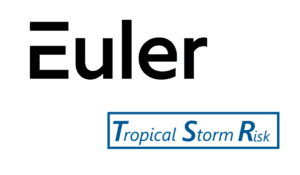What is PAI insurance?
What is PAI insurance?
What is Personal Accident Insurance? PAI is also commonly referred to as accidental death and dismemberment insurance. This type of insurance covers death or dismemberment (including loss of sight) due to unintentional injuries. It does not apply to deaths due to natural causes. Jul 27, 2015
How do I contact Pai?
Thank you for your interest in PAI. Please contact us by phone. … Limited Benefits Customer Service Numbers. Line of Business Phone Number benefits 4 Today 1-800-440-3068 Essential StaffCARE 1-866-798-0803 EssentialCARE 1-866-740-4006 4 more rows
Is Pai a TPA?
PAI is an industry leader of Third Party Administrator (TPA) products, services and solutions dedicated to turning your vision into a business plan solution.
What is Pai stand for?
Personal Activity Intelligence What is PAI and how do you measure it? PAI is short for Personal Activity Intelligence. You earn PAI points every time your heart rate increases: The higher heart rate, the faster you earn PAI. Our research shows that those who achieve 100 PAI or more every week over time live on average eight years longer than others.
What is Pai policy in SBI bank?
This Policy is designed to cover Loss of Life, Disabilities, and Income due to an Accident. Accidental Death cover is a compulsory cover; Permanent Total Disablement, Permanent Partial Disablement and Temporary Total Disablement are Optional covers available to the proposer.
What prescription is PAI?
monoamine oxidase inhibitor any of a group of drugs that inhibit the action of monoamine oxidase, the enzyme that breaks down norepinephrine and serotonin, prescribed for their antidepressant action; the most widely used ones are isocarboxazid, phenelzine, and tranylcypromine.
What is Pai ISO?
As an ISO award-winning processor, PAI provides secure, affordable processing that puts more money in your hands. PAI provides a simple, secure web-based real-time 24/7 reporting tool, PAIReports, so you can track the profitability of your ATMs from anywhere, at any time.
What is Pai 401k?
CoPilot Retirement Services by PAi PAi, an industry-leading plan administrator and recordkeeper, currently serves over 17,400 employers, 183,300 participants, and over 600 firms. * We also work with thousands of Financial Advisors and CPAs to offer small business retirement plans around the country.
What is Pai Thailand known for?
Today, Pai primarily thrives on tourism. Mostly a hippie destination, it is filled with hot springs. Known among backpackers for its relaxed atmosphere, the town is full of cheap guesthouses, souvenir shops, and restaurants. In the environs of the town are spas and elephant camps.
What are the 4 types of business insurance?
Types of Business Insurance General liability insurance. Commercial property insurance. Business income insurance.
What is the most common business insurance?
The most common policy for small businesses is the Businessowners Policy (BOP). The BOP combines coverage for all major property and liability insurance risks as well as many additional coverages into one package policy suitable for most small businesses.
What insurance should you get when starting a business?
When you’re starting your own business, some types of coverage you should make sure to have are: General liability insurance. Professional liability insurance. Workers’ compensation insurance.
What is a BOP insurance policy?
What Is a Business Owner’s Policy (BOP Insurance)? If you own a small business, a Business Owner’s Policy, or BOP, protects you from liability claims and lawsuits; safeguards your buildings, equipment and inventory; and covers you financially if your business unexpectedly shuts down from a covered loss.
What is AD & O policy?
Directors & Officers (D&O) Liability insurance is designed to protect the people who serve as directors or officers of a company from personal losses if they are sued by the organization’s employees, vendors, customers or other parties.
Why do businesses fail?
The most common reasons small businesses fail include a lack of capital or funding, retaining an inadequate management team, a faulty infrastructure or business model, and unsuccessful marketing initiatives.




